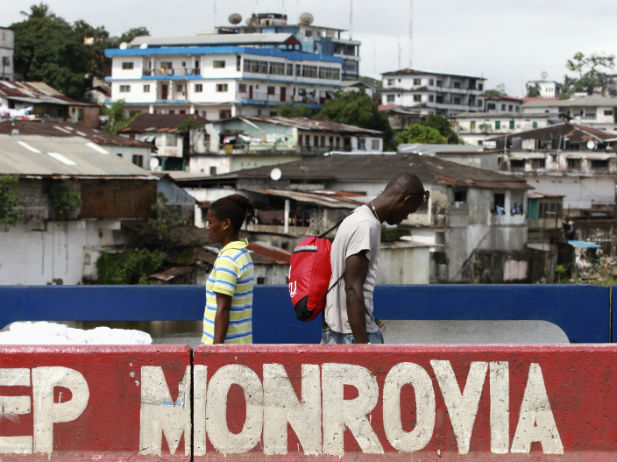NEWS
August 20, 2012

IN BRIEF
This blog post was originally published on the Council on Foreign Relations’ Development Channel. Emerging Voices features contributions from scholars and practitioners highlighting new research, thinking, and approaches to development challenges. This article is from Blair Glencorse, Founder and Executive Director of the Accountability Lab. He analyzes the challenges of integrity and accountability in Liberia’s colleges and universities, arguing that failures in higher education threaten the country’s progress toward peace and development. You can follow Glencorse on his blog and on Twitter at @blairglencorse. Under the leadership of President Ellen Johnson Sirleaf, Liberia and its international partners have focused on several [...]
SHARE
Under the leadership of President Ellen Johnson Sirleaf, Liberia and its international partners have focused on several governance priorities to bolster economic development and prevent a repeat of the brutal conflict of the past. Their reforms have included rooting out rampant corruption within the public sector, opening up government, streamlining business rules to attract investment, and consolidating management of natural resources. Indeed, Liberia was the first African state to comply with EITI rules governing extractive industries and the first West African country to pass a Freedom of Information Act to support more transparent government.
Among these issues, Liberia’s higher education sector may not seem a priority. But chronic accountability problems in colleges and universities are putting the sustainability of Liberia’s transition under threat. The country’s human capacity is very low; it ranks 182nd out of 187 countries on the UN’s Human Development Index and literacy is less than 60 percent. It is difficult to manage a state and society without effective institutions of higher education that can generate basic administrative and management knowledge over time.
Accountable universities are also important because Liberia has significant natural resources—a key driver of conflict in the past—that must be managed effectively and equitably. Beyond huge agricultural potential and large deposits of iron ore, rubber, gold, diamonds, and timber, significant amounts of oil were recently found off Liberia’s coast.
Governance of the extractive sector is already weak, as documented in detail by a recent Global Witness report. There were nearly 3,000 engineering students across the country this year, but just 30 were able to pass the necessary exams to graduate. This is hardly a sign that the necessary capacity is being developed to manage the country’s resources. A failure of higher educational institutions raises the likelihood that Liberia’s wealth will turn into a curse instead of a blessing.
It is also essential that current students—the next generation of leaders—understand the importance of accountable structures and behaviors, which they can then build upon and replicate at the national level. Earlier this summer, one university closed for three weeks after violent campus protests by students and a brawl with the administration when fees were increased without warning. Meanwhile, the country’s largest public institution of higher education, the University of Liberia, was racked by fierce riots between supporters of opposing political parties after student elections. Colleges and universities should be forums to learn about effective decision-making and responsible participation. Too often, though, they are not.
The endemic integrity challenges of the higher education system manifest themselves both at the top—in Liberia’s government—and at the bottom—in colleges and universities and among individuals within them. The Ministry of Education has not yet developed a strategy for the future of universities and colleges, while the body tasked with oversight—the National Commission on Higher Education—largely cannot effectively accredit institutions, set clear regulations, or enforce standards. Universities and colleges themselves rarely have strategic plans and are unable to follow regular reporting regimes.
Patronage and bribery by administrators, professors, and students are widely reported. Abuse of resources, teacher absenteeism, and sex for grades appear common, although data is minimal and there has been almost no systematic research into these problems. This structure endures because the corrupt dynamics have become entrenched and a “culture of silence” prevents reporting of problems and hence any constructive reform. When combined with a lack of resources, limited technology, and poor teaching quality, this produces woeful outcomes from Liberian higher education. Employers complain that some students graduate without even being able to write their names. The system, rather than generating knowledge and building integrity, actually teaches corruption and undermines capacity.
The Accountability Lab, an organization I founded recently to find new answers to problems of accountability in the developing world, is working with universities and civil society stakeholders to develop innovative solutions to these challenges. Over the past four months in Liberia, we have conducted preliminary research and discussions with a wide range of individuals—from government officials to students. This work has established that a new approach is needed to strengthen rules, understand problems, set benchmarks, and ensure credible punishments for illegitimate behaviors.
An approach of this type will have to be carefully integrated within wider reform efforts, and will take decades, not years. In the short term, clear rules and benchmarks could improve monitoring and generate more ethical behavior. This effort might include helping university administrations enforce codes of conduct for students and professors, and putting in place honors councils to encourage honesty and achievement among students.
To overcome the “culture of silence,” universities also need trusted and anonymous tools for reporting problems, supported by reformers within university administrations who are willing to address them. This would allow leaders to enforce rules based on evidence, firing professors who engage in corruption, for example.
Fortunately, higher education is garnering greater attention. Public university professors are receiving higher salaries, and a new education law provides for student loans. Liberia’s government is working with the World Bank and USAID to develop a strategy for higher education and provide trained professors.
Moreover, some administrators, professors, and students understand the need for reform and want to change the status quo. Liberia’s international partners and friends should work to support and encourage these reformers in order to build a higher education system that can prepare Liberians to successfully rebuild and develop their country.
